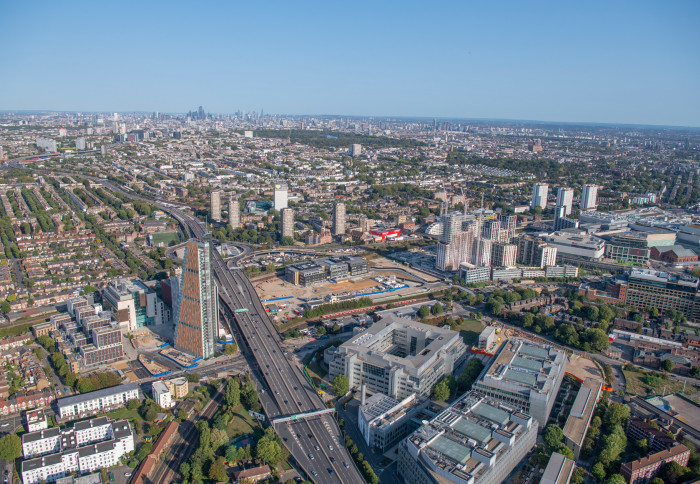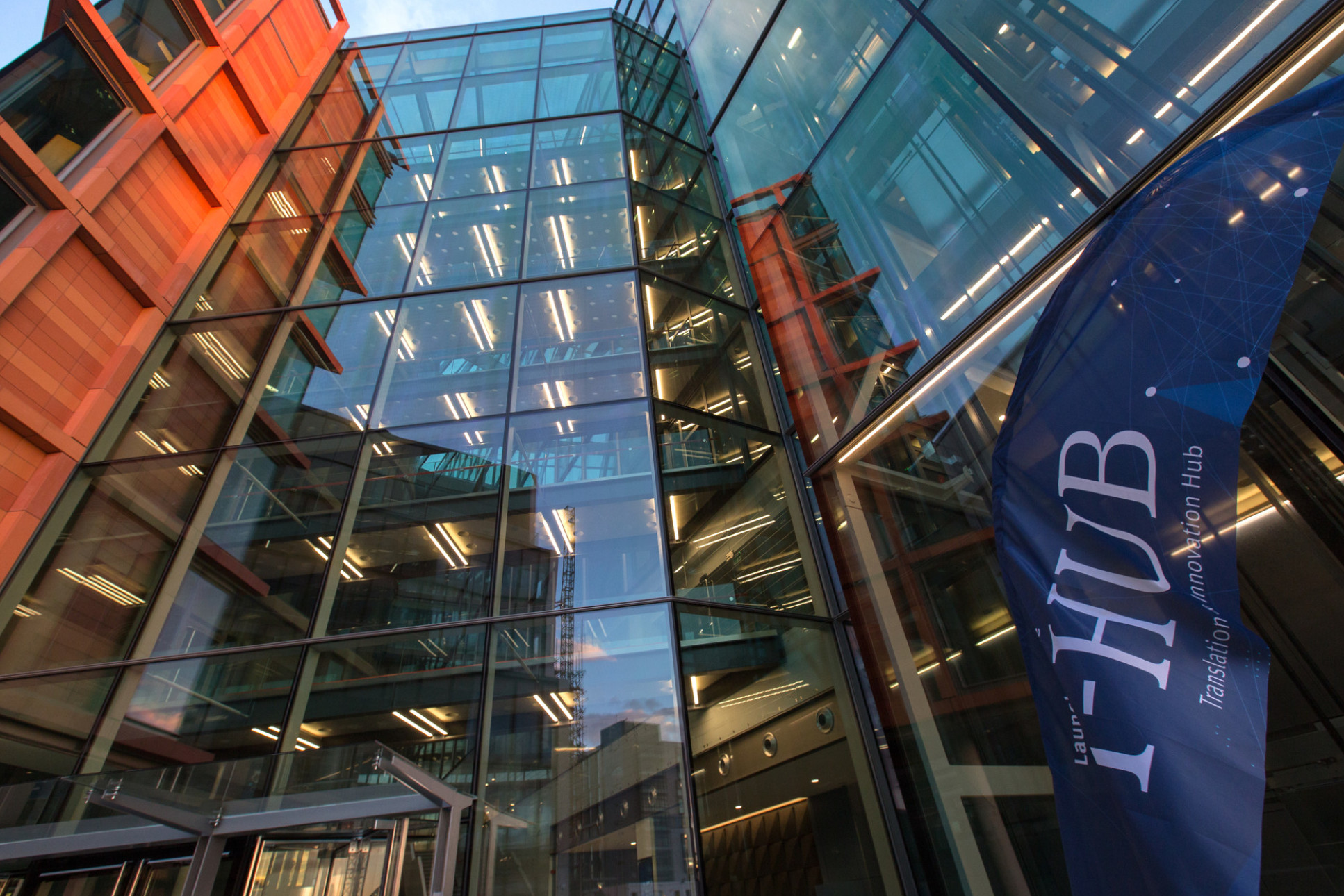Thinking to the future: Incubator companies grow White City ecosystem

Three life sciences startups have graduated from the Imperial White City Incubator and moved into their own spaces in the White City area.
Despite the challenges of last year, three companies based at the White City Incubator, Imperial's hub for growing deep science startups, are planning for the future by growing into new office space at Imperial's Translation & Innovation Hub (I-HUB) and lab space in the White City district. Two have pivoted their technology to a COVID-19 application whilst another team is developing software to enable smart, remote monitoring of respiratory conditions.
Smartphone management of respiratory diseases
SMART Respiratory Products has developed a handheld device to track peak flow, which is the standard measure of the speed that a person can blow air out of their lungs. It is used to help diagnose and monitor asthma, and the device can feed results into a smartphone, allowing data to be captured and shared. The technology is originally aimed to help asthma sufferers but it has the potential to help manage a range of respiratory diseases.
The White City Campus is a fantastic location and it’s great to be part of the Incubator story. Continuing to be based in the I-HUB is really a symbol of our ambition to grow from a startup into a global company. Dr Thomas Antalffy Smart Respiratory
Since taking office space at the Incubator in 2018, SMART Respiratory Products has shifted its focus from the device itself to developing software to maximise its functionality through AI and algorithms. During this time the UK based team has expanded from two people to six.
“The White City Campus is a fantastic location and it’s great to be part of the Incubator story,” says Dr Thomas Antalffy, Co-founder and Managing Director. “I think continuing to be based in the I-HUB is really a symbol of our ambition which is to grow from a startup into a global company. It’s an inspiring place to be and, although we are all working on different innovations, it feels like the companies based here are part of a larger project.”
The company has sold into 45 countries and the app has been translated into 29 languages, with recent regulatory approval in India and planned approval from the FDA in the USA. In the future they are hoping to harness their existing expertise in developing a telemedicine approach as healthcare continues to shift towards more remote approaches.

Biomarker expertise
Affinity Biomarker Labs assists in the discovery, verification, validation and analysis of novel biomarkers, particularly in areas of high unmet need, so they can be used as indicators of a disease or condition to help clinical decision making.
It’s wonderful to see these companies grow and eventually graduate from the Incubator. It’s even more encouraging to see them stay in the local area. This demonstrates we are building a critical mass of life science companies. Graham Hewson Head of Incubation, Imperial
Based at the Incubator since 2018, it has worked collaboratively with a number of other Incubator companies. In 2019, Incubator team employees were part of Affinity’s study to offer a wellness test that enabled them to assess the efficacy of novel micro sampling technology.
With the outbreak of COVID-19, Affinity concentrated on supporting research into the immune response following COVID-19 infection including the launch of the first automated immunoassays in the UK to detect SARS-CoV-2 antibodies. Affinity is now expanding its testing capabilities further, adding mass spectrometry to its existing molecular, immunoassay and multiplex biomarker analysis capabilities.
The Affinity team now has its head office within the I-HUB and its lab space nearby in West London.
AI for critical care
SIME Clinical AI has developed a compact point-of-care device and AI diagnostic platform for use in a critical care setting. Its first products are designed for the neonatal intensive care wards to predict respiratory distress syndrome and chronic lung disease in preterm babies at birth. This early screening then enables clinicians to deliver early preventative therapy within the first hour of life.
The device detects these conditions by measuring the level of surfactant in the lungs which is an essential group of molecules that support breathing. The preventative therapy uses a form of natural surfactant to treat these conditions.
The company joined the Incubator in 2017 where it was a tenant in a shared lab and in 2018 completed a two year EU Horizon 2020 project that resulted in the publication of clinical data, an engineering prototype and new IP. In 2021 it graduated out of the Incubator and now has its own space locally, contributing to the critical mass of life science companies in White City. The company is now developing a product to predict acute respiratory distress syndrome (ARDs) in critically ill COVID-19 patients, which again can enable early targeted care with a form of surfactant therapy.
Graham Hewson, Head of Incubation at Imperial, said: “It’s wonderful to see these companies grow, achieve and eventually graduate from the Incubator. It’s even more encouraging to see them stay in the local area and ecosystem. This really demonstrates we are building a critical mass of life science companies and that the Incubator plays a key role in the development of a broader innovation district.”
Article text (excluding photos or graphics) © Imperial College London.
Photos and graphics subject to third party copyright used with permission or © Imperial College London.
Reporter
Franca Davenport
Communications and Public Affairs